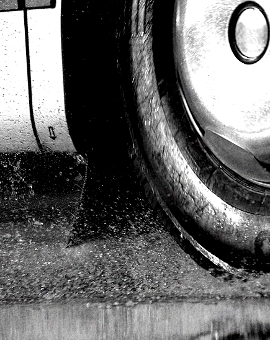Japanese giants admit failures
 Toyota, Honda, Mazda and Yamaha have admitted to safety test mishandling.
Toyota, Honda, Mazda and Yamaha have admitted to safety test mishandling.
Toyota Motor Corporation, along with Honda Motor and other prominent Japanese car manufacturers, revealed this week that internal investigations have uncovered significant mishandling of vehicle testing across multiple models over the past ten years.
The disclosure follows instructions from Japanese authorities mandating that these companies examine their compliance with national safety and certification standards.
Toyota admitted it did not gather proper data for pedestrian and occupant safety tests on three models, including the widely popular Yaris Cross SUV.
Honda and Mazda Motor also acknowledged issues with the testing procedures for several of their models.
Despite these admissions, the automakers asserted that these testing irregularities do not compromise the safety or performance of the vehicles, assuring customers that they can continue to use the vehicles without concern.
Still, Toyota has decided to temporarily halt shipments of three affected models produced in Japan, and Mazda has suspended sales of two models sold domestically.
These measures aim to address the immediate concerns arising from the mishandling of tests.
In addition to Toyota, Honda, and Mazda, Suzuki Motor and Yamaha Motor also reported inadequate testing practices in the past.
These revelations are part of a growing list of testing and certification issues plaguing Japanese automakers in recent months, raising concerns within the industry about potential impacts on consumer trust in the quality of Japanese vehicles.
The Japanese transport ministry's directive in January for 85 companies, including automakers and component manufacturers, to investigate their testing procedures, stemmed from previous scandals.
An internal probe in December at Daihatsu Motor, a Toyota subsidiary, revealed that many of its vehicles had not undergone proper collision-safety testing.
In the following month, another Toyota unit halted all engine shipments after discovering falsified engine power figures.
“Given that vehicle safety and performance isn’t impacted, this latest revelation isn’t hugely critical for the companies involved,” says Satoru Aoyama, a senior director at Fitch Ratings.
However, “there has long been a perception of the superior manufacturing and quality of Japanese products and with these instances of fraud appearing again and again, perceptions may be beginning to change,” he added.
Toyota's investigation identified errors in crash and other tests for four models discontinued in 2014: the Crown, Isis, Sienta, and an older version of the Lexus RX.
Chairman Akio Toyoda apologised to customers during a briefing this week, acknowledging the gravity of the issue.
“These acts shake the very foundation of the verification system,” he said.
“They should have never been committed.”
Toyoda said he is committed to resolving these issues, and has been personally visiting Toyota group companies to address problems with their certification processes and work structures.
The Japanese transport ministry announced that it would conduct an inspection at Toyota headquarters to follow up on these disclosures.








 Print
Print